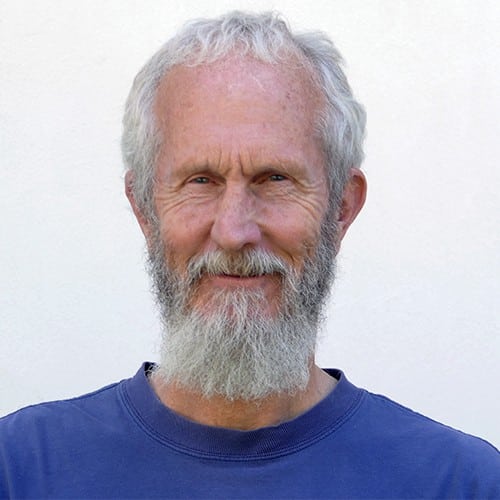COMPLEXITY SCIENTISTS CALL FOR FASTER CHANGE IN ECONOMIC CONCEPTS
A group of complexity scientists, including CSH’s External Faculty Brian Arthur and Doyne Farmer, call for a faster transformation in economic thinking: “We believe that in order for economics to progress it needs to fully embrace a transdisciplinary approach and modernize a number of its key concepts,” they write in a large piece published in the American quarterly Boston Review. The arguments were further discussed by The Economist this week.
What is usually called “the economy”, the authors write, is rather “a highly complex, multi-level system that encompasses human biology, human behavior, group behavior, institutions, technologies, and culture, all mutually entangled in networks of nonlinear, dynamic feedback. Each of these levels in the system is subject to learning, adaptation, evolutionary, and co-evolutionary processes which means that the system is constantly changing, self-creating, and never at rest. These dynamics in turn create system-level emergent behaviors, including economic growth, inequality, and financial booms and busts. The whole system, in turn, is deeply embedded in the physical processes of our planet.”
In short, “the” economy is a—and is part of a—complex system.
MAINSTREAM ECONOMICS FALLS SHORT IN DEALING WITH REAL-WORLD COMPLEXITY
In order to better deal with this complex system, the transdisciplinary approach of complexity economy—which is also one of the core competitions at the Complexity Science Hub Vienna—breaks with traditional perspectives.
In their article, the authors elaborate three examples of the new way of thinking:
First, complexity economics don’t follow the notion of rational choices: The Homo sapiens “looks almost nothing like Homo economicus. Instead of asocial, transactional, self-regarding utility maximizers, real humans are intensely social, highly cooperative, and other-regarding creatures who make decisions inductively, heuristically, mimetically, and through group reasoning.”
Second, traditional economics with its concept of “the representative household/the representative firm” entirely misses heterogeneity. Although a new generation of economists tries to deal with that problem, most of their work is looking backwards, the authors criticize: asking “What happened?” instead of “Why did it happen” or, even more importantly, “what do we do?” In contrast, they point out, “explicitly modelling heterogeneity is central to the complexity economics agenda.”
“WITH THE STANDARD ECONOMIC VIEW OF CLIMATE CHANGE, WE MAY OPTIMIZE OUR WAY TO MASS EXTINCTION”
The third important difference is the systems level view of the economy: “Economics has historically assumed that the economy is an equilibrium system—a system at rest. (…) But in the twenty-first century we can do better,” write Brian, Doyne et al.
A disturbing example is the current climate crisis. “The standard economic view is to see climate change and our response to it as a cost-benefit problem to be solved using optimization models that ‘internalize the externality’ through carbon prices,” states the article. According to one physicist, this view might even optimize our way to mass extinction. Complexity economics on the other hand sees “the economy as a complex system embedded within the larger complex system of the environment.”
The authors call the current ecological and climate crisis “the mother-of-all disequilibrium problems” and describe the necessary shift to a zero-carbon economy as “an epochal system transformation on par with the shift from hunting and gathering to agriculture or the Industrial Revolution. (…) It is a problem that requires extremely rapid responses that go far beyond what the standard optimization models even consider, including major changes in our technologies, institutions, behaviors, and cultures,” a problem so big that “it will require economists to work closely with other disciplines and be open to radically different ways of thinking.”
To tackle the challenges, changes in the field should “go further, faster. Economics needs to embrace what other fields have learned about behavior, networks, institutions, culture, evolution, and non-equilibrium systems. To date the infrastructure of the economics profession—journals, funding bodies, hiring and tenure committees—has been largely closed to these ideas and approaches. If economics is to reform and move beyond neoliberalism, this needs to change.”
“ECONOMICS AFTER NEOLIBERALISM”
The article by Brian Arthur, Doyne Farmer et al. is the contribution to a discussion that was started in February 2019 by three economists in the Boston Review. In the article “Economics after Neoliberalism”, Suresh Naidu, Dani Rodrik, and Gabriel Zucman call for a more inclusive view in economic thinking. The scientists demand “both that we consider the whole distribution of outcomes, not simply the average (the ‘middle class’), and that we consider human prosperity broadly, including non-pecuniary sources of well-being, from health to climate change to political rights.”
To improve the quality of public discussion around what they call inclusive prosperity, they organized a group of economists—the Economics for Inclusive Prosperity (EfIP) network—to make policy recommendations across a wide range of topics, including labor markets, public finance, international trade, and finance. The EfIP runs a page with essays from economists from all over the world with the aim “not simply to offer a list of prescriptions for different domains of policy, but to provide an overall vision for economic policy that stands as a genuine alternative to the market fundamentalism that is often—and wrongly—identified with economics.”
LINKS:
W. Brian Arthur, J. Doyne Farmer et al.: “Economics needs to embrace a transdisciplinary approach” (Boston Review, March 19, 2019)
The Economist: “Simple interactions can have unpredictable consequences” [Apr 2, 2019; restricted access]
Suresh Naidu, Dani Rodrik, Gabriel Zucman: “Economics after Neoliberalism” (Boston Review, Feb 15, 2019)
Homepage of the Economics for Inclusive Prosperity (EfIP) network


